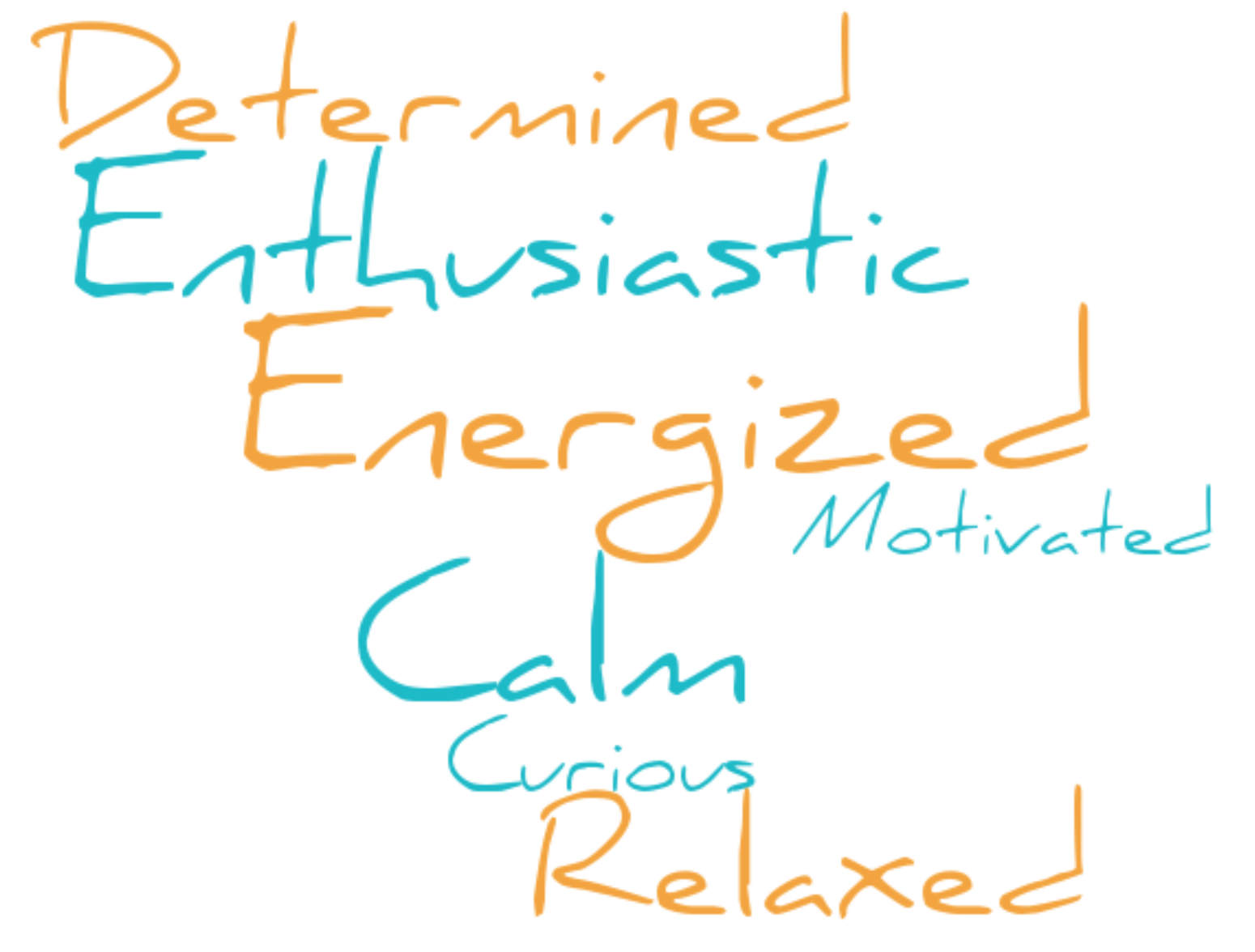Have you ever noticed how a simple change in your surroundings can have a powerful effect on your focus, motivation, and productivity?
Through our conversations with students and parents, we often find that students are trying to force themselves to study in environments that aren’t a good fit for them…which makes completing their work much more of a struggle.
Modifying their study environment can be a quick & simple way to make the process of studying and completing homework easier and more enjoyable.
One thing that can help is recognizing that an ideal study environment isn’t just a physical space…there are lots of different aspects of the environment that can impact our ability to focus on our work. So, if you get creative, you can often find multiple ways to set up an ideal study space that works for you.
Environment = Motivational shortcut
Let’s face it…for most students, doing schoolwork is NOT the highlight of their day.
It’s hard to get motivated to do homework, which is why they often procrastinate on it. And even students who are motivated enough to start their work often find it challenging to sustain that motivation long enough to finish it.
This is one reason why it’s so helpful to set up an ideal study space — because your environment can act as a “motivational shortcut”.
Going to a study space where you naturally feel more motivated and productive is a much easier way to get “in the zone” than using willpower to try and force yourself to focus in the same space where you usually spend time relaxing and scrolling through Instagram.
What emotions help your student get in the zone?
There are distinct differences in the types of environments that tend to work best for different people, and finding out what tends to work best for your student can make life a lot easier!
To help identify the ideal study environment for your student, ask them to consider what emotions they would need more of (or less of) to get laser-focused on their work and power through it as efficiently as possible.

Based on your student’s answer, they can set up a study environment that helps them shift into that ideal emotional state more consistently and intentionally, each time they are ready to work. Using their environment as an emotional shortcut is much easier for most students than using willpower to shift into this environment on their own.
For example, a student who gets anxious when they’re studying may need to feel calmer and more relaxed in order to get work done as effectively as possible. So, they might do their best work in a room with low lighting, sitting in a comfy chair, wearing a cozy sweatshirt, with some herbal tea nearby, listening to ambient ocean sounds in the background.
On the other hand, a student who gets bored or tired when they’re studying may need more energy and motivation to get work done, so their ideal study environment is going to look totally different! They may do their most productive work in a busy coffee shop or kitchen surrounded by other people, with bright lights, listening to a playlist of high-energy movie soundtracks.
What is the ideal study environment for your student?
To find out what works best for your student, click here to download a copy of our Ideal Study Environment Quiz:
Ideal ≠ Reality
Sometimes it’s not possible for your student to set up an ideal study space. So, they might need to get creative with how they go about creating the best possible environment for themself.
If your student is dealing with space constraints, try…
- Setting up a tiny desk in an area of the house no one else is using (like this, this, this, or this)
- Getting a beanbag chair or lap desk they can use to set up an instant study space anywhere in the house
- Experimenting with unusual locations students might not normally think of as “study spaces”, like sitting on the stairs or standing at the kitchen counter. For some students, studying in novel spaces can be even more effective than going to the same place every day…so don’t be afraid to think outside the box and try something new
If they’re dealing with a lot of distractions, try…
If they study better with people but can’t go to a friend’s house, library, or coffee shop, try…
- Sitting near other family members in the kitchen or living room
- Getting on FaceTime or logging on to Zoom to study with friends
- Playing coffee shop sounds in the background from a site like Noisli or Coffitivity
- Studying live with a “buddy” on YouTube 😉 (search “study with me”)
While it might not be possible for your student to create the perfect study environment, there are ways they can optimize the space they have…and it’s worth the effort to try and create something that will work for them!
Other things to keep in mind
- They may need more than one “right” environment. The type of environment that works best may depend on the subject they’re working on, the type of task they’re doing, or the difficulty of the work. The same student who focuses best on math problems while sitting at their desk with a white noise machine in the background might be better at brainstorming ideas for English papers when they are walking around outside using a voice dictation app to capture their ideas. Encourage your student to keep experimenting until they find the locations and formats that work best for each type of work they need to do on a regular basis.
- The “right” environment can change over time. Just because a study environment worked well for your student last year, last semester, or even last week doesn’t mean it will necessarily be a good fit today! If they’re having difficulty focusing, encourage them to try changing their environment. Sometimes the novelty of working in a new place or doing something different can be just the emotional shortcut they need to jumpstart their progress!
- Test your assumptions. If you and your student have different ideas about what will work best to keep them focused, try testing out your assumptions to see what actually works best for them in reality. For example, if your student insists that they study better with music on, they could try alternating between times when they have 15 minutes of music on, then 15 minutes of music off, and then go back and count the number of math questions they answered correctly during each time period. This can be a great way of testing your assumptions and finding the best solutions for your student.
We hope these tips help your student create a study environment that works for them! A lot of students really struggle with exams, so if you think your student could use some additional support with this process we’d be happy to help!

Join 11,000+ parents helping their students earn better grades with less stress!

About The Author
Dr. Maggie Wray is a certified ADHD Coach & Academic Life Coach with a Ph.D. in Neurobiology and Behavior from Cornell and a Bachelor’s degree in Astrophysics from Princeton. She founded Creating Positive Futures in 2012 to help high school and college students learn how to earn better grades with less stress. Her team of dedicated coaches is on a mission to empower students to develop the mindset, organization, time management, and study skills they need to achieve their goals.
Related Posts
Other Posts You May Enjoy
How Does Your Teen Handle Failure?
How do you feel about failure?Most of us aren’t crazy about it. But at some point, no matter how hard we try, we’re going to fail at something. So, it’s important to consider how to respond to failure when it does happen, and how to improve our resilience so we’re...
Optimistic students earn better grades
Is your student more of an optimist, or a pessimist? Studies have shown that optimists experience a number of benefits later in life, as compared with their more pessimistic peers, including… Better test scores and higher GPAs Lower levels of stress, anxiety, and...
Starting before you’re motivated
Most students want to do well in school. But wanting to do well doesn't guarantee they will feel motivated to work on assignments in the moment. Even students who usually get good grades have days when they just don’t feel like doing homework or studying for their...




